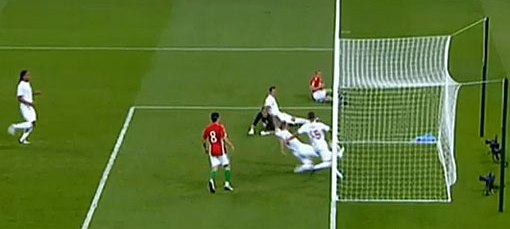By Andrew Warshaw
December 6 – At least two goal-line technology systems have proved themselves sufficiently accurate and could be in place by the start of next season, FIFA President Sepp Blatter has revealed.
Nine different systems have been tested, with a decision due to be taken by the International Football Association Board (IFAB), the game’s lawmakers, in March next year.
Blatter has already gone on record as saying goal-line technology could be in place by the time of the 2014 Brazil World Cup but now it could be brought in even earlier.
Hawk-Eye, widely used in cricket and tennis, and a microchipped ball system are two of those in running.
Blatter told German newspaper Bild: “There are now systems that combine precision, speed and are uncomplicated.
“We are now in the testing phase and the IFAB will vote in March 2012 in London over using this resource.
“If the final decision is made, it can be used from the 2012-13 season.”
In a separate interview with Spanish sports daily El Mundo Deportivo, he added: “Brazil 2014 will have technology to avoid phantom goals.
“FIFA has two good systems that meet all the demands we set: reliability, immediacy and not being difficult to use.”
Blatter also re-emphasised that the 2022 World Cup in Qatar would not be switched despite continuing speculation that it may ultimately be moved away from the tiny Gulf state.
“The 2022 World Cup will definitely take place in Qatar and with my full confidence,” he insisted.
“This has been firmly established by a democratic process.”
Contact the writer of this story at zib.l1734925157labto1734925157ofdlr1734925157owedi1734925157sni@w1734925157ahsra1734925157w.wer1734925157dna1734925157
Related stories
October 2011: Collina shuns goalline technology over Platini’s AAR theory
October 2011: Goal-line technology delayed due to ongoing testing
July 2011: FIFA to trial goal-line technology systems
July 2011: Goal-line technology could be a reality by 2012, hopes Scudamore
May 2011: Top German FA official bemused by FIFA goal-line technology delay

